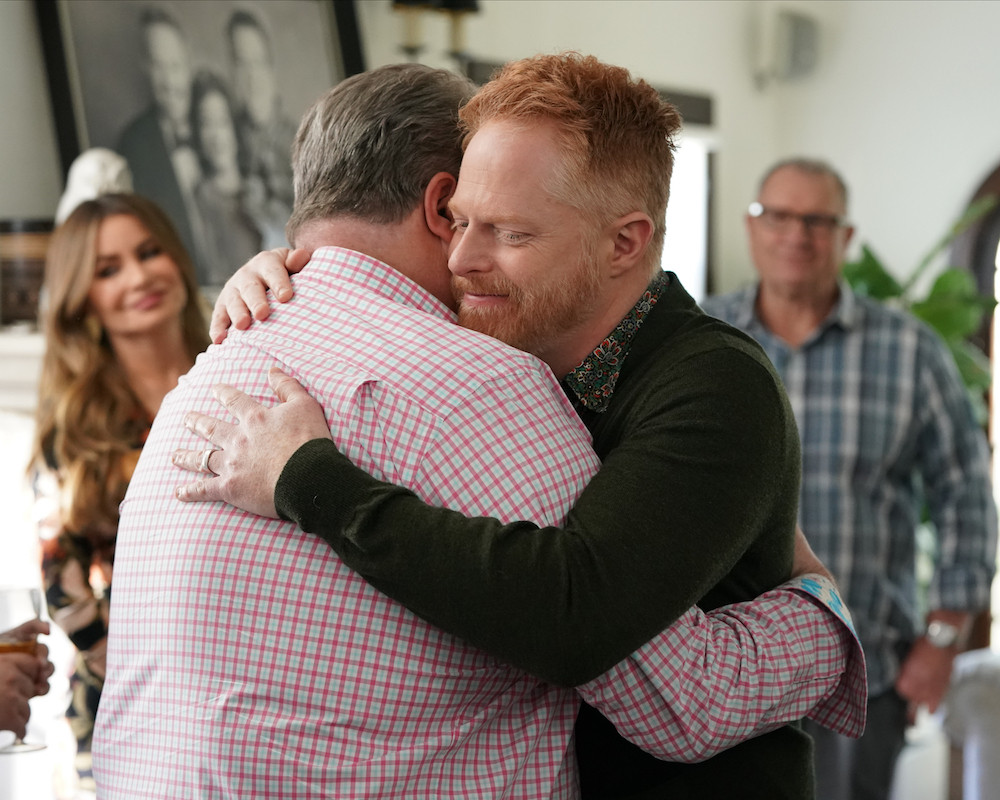When “Modern Family” debuted in 2009, it wasn’t just another sitcom; it was a cultural phenomenon. This mockumentary-style show quickly became a primetime staple, sparking conversations and resonating deeply with audiences. While the hilarious antics of Gloria, portrayed by Sofia Vergara, charmed viewers across demographics, it was the heartwarming and relatable portrayal of Cameron and Mitchell, the show’s central Modern Family Gay Couple, that truly broke new ground.
Jesse Tyler Ferguson and Eric Stonestreet brought to life Cameron Tucker and Mitchell Pritchett, a loving, committed, and often hilariously bickering gay couple. In a television landscape that had only just begun to feature LGBTQ+ characters, “Modern Family” offered something revolutionary: a central, long-term queer relationship on a major network. While shows like “Will & Grace” had made strides, “Modern Family” was the first to place a gay couple at the very heart of its narrative, making them integral to the show’s success and appeal. This wasn’t just representation; it was normalization.
 Eric Stonestreet and Jesse Tyler Ferguson in “Modern Family”ABC / Bonnie Osborne
Eric Stonestreet and Jesse Tyler Ferguson in “Modern Family”ABC / Bonnie Osborne
To understand the true significance of Cameron and Mitchell’s impact, it’s crucial to remember the social context of 2009. This was the year Proposition 8, the discriminatory ban on same-sex marriage, was passed in California. Legal marriage equality was still years away. In fact, LGBTQ+ characters in primetime scripted series were scarce, accounting for a mere three percent of regular roles. Fast forward to 2020, and that number had surged to 90, a testament to the cultural shift partly fueled by shows like “Modern Family”.
Megan Townsend of GLAAD aptly noted, “Progress can’t be attributed to any one show by itself, but ‘Modern Family’ hit the air at the moment it was most needed and became part of the culture change wave that lead to some of the real-world wins we’ve seen.” For eleven seasons, “Modern Family” consistently drew millions of viewers, introducing a modern family gay couple into homes across America, many of which may not have otherwise engaged with LGBTQ+ stories. Viewers watched Cameron and Mitchell navigate the everyday joys and challenges of life, love, and family, fostering understanding and acceptance through laughter and genuine connection.
A powerful example of the show’s real-world influence came in 2014 when Cameron and Mitchell finally tied the knot in the Season 5 finale. Over 10 million viewers tuned in to witness this landmark television moment. Coincidentally, on the very same day, a Gallup poll revealed record-high support for marriage equality in the United States. While correlation isn’t causation, the cultural zeitgeist was undeniable.
Further solidifying their impact, Cameron and Mitchell’s journey to parenthood in Season 1, when they adopted their daughter Lily, marked another significant milestone. “Modern Family” paved the way for positive portrayals of LGBTQ+ families on television. Shows like “The Fosters” and “The New Normal” followed, confidently depicting LGBTQ+ parents as loving and nurturing. Even established shows like “Grey’s Anatomy” embraced this shift, featuring Callie and Arizona adopting a child in 2011.
The ripple effect of “Modern Family”‘s representation extends even further, reaching children’s programming. Disney’s “Doc McStuffins” broke barriers in 2017 by introducing an interracial lesbian couple as moms, voiced by Wanda Sykes and Portia de Rossi. Hulu’s “The Bravest Knight” premiered in 2019, presenting an animated fairytale with a gay dad recounting his adventures to his adopted daughter. These examples demonstrate how the groundwork laid by “Modern Family” has broadened representation across genres and demographics.
While quantifying the precise impact of “Modern Family” is impossible, its immense popularity and longevity undeniably coincided with a period of rapid advancement in LGBTQ+ visibility on television. As Megan Townsend emphasizes, “We know that representation matters. The entertainment we see on screen can shape the world around us through education, sharing new stories, seeing yourself reflected in a way that empowers you or finding common ground with people you might not have before.” “Modern Family”‘s modern family gay couple did just that, leaving an indelible mark on television and contributing to a more inclusive and understanding society.
